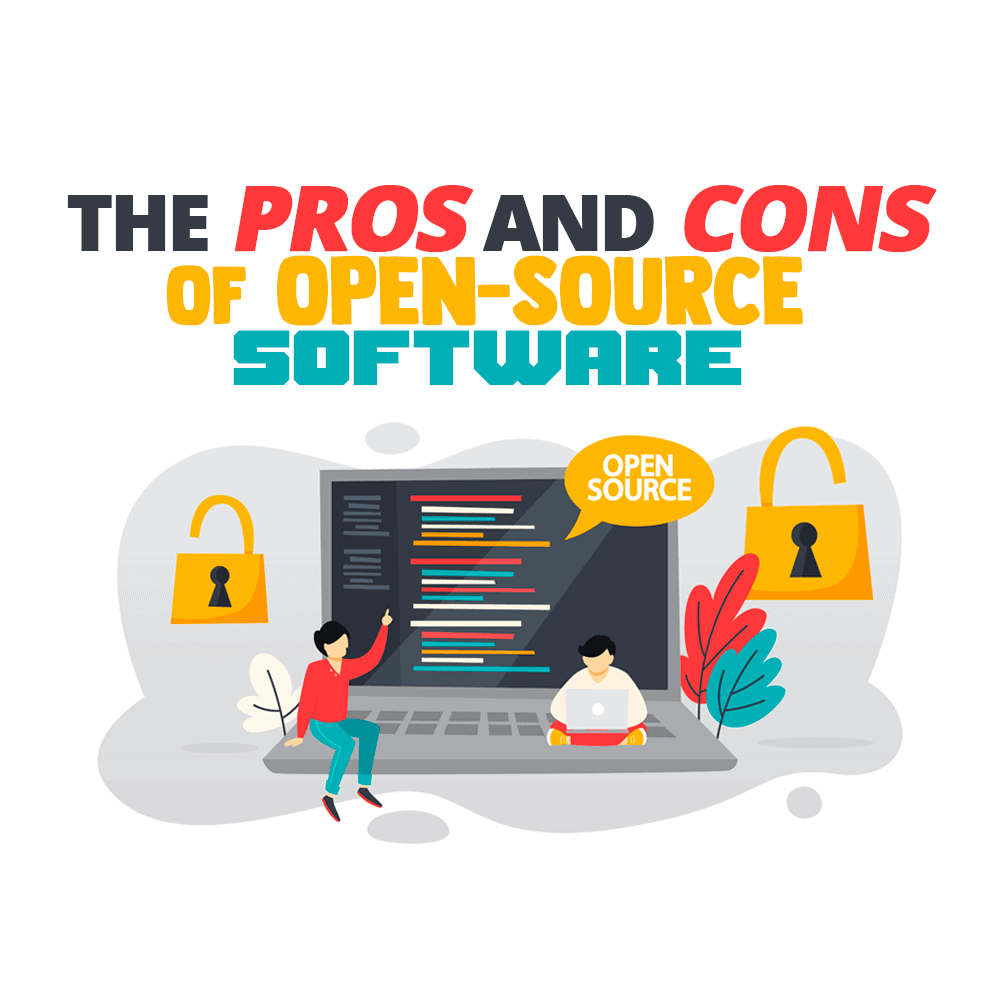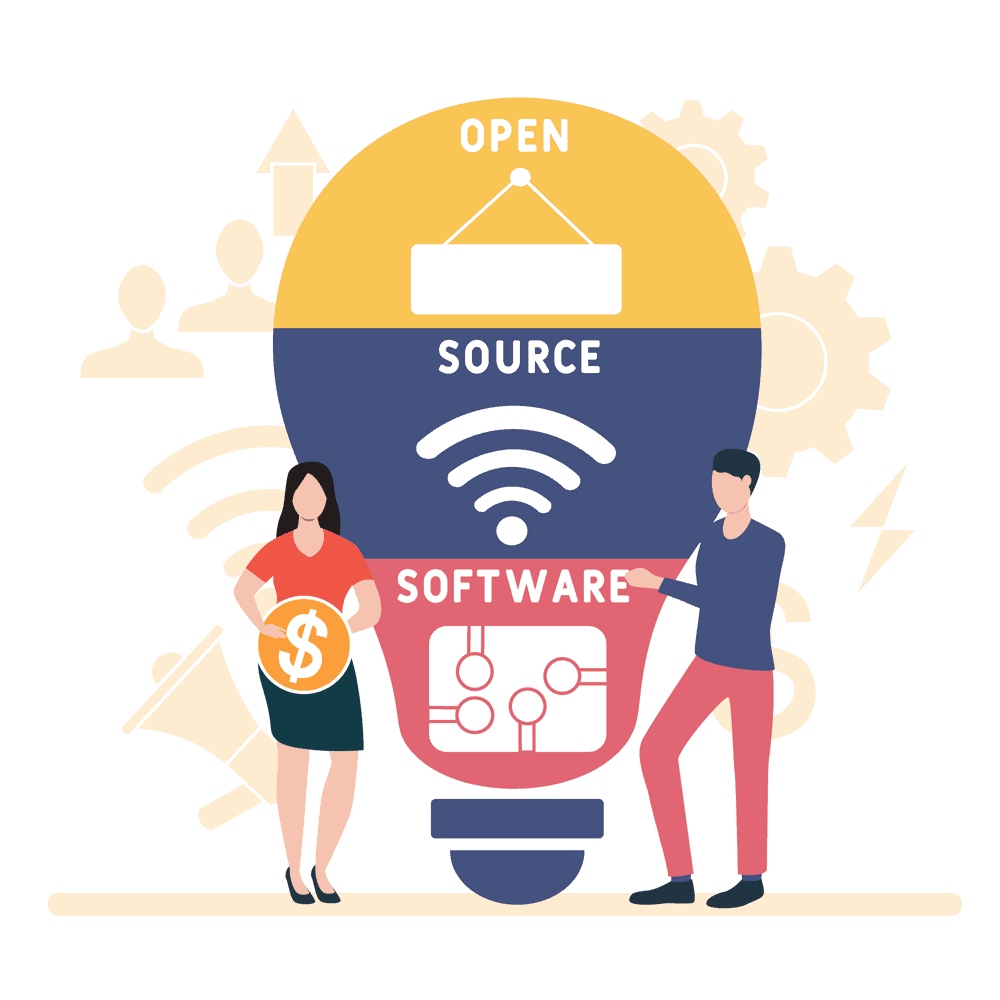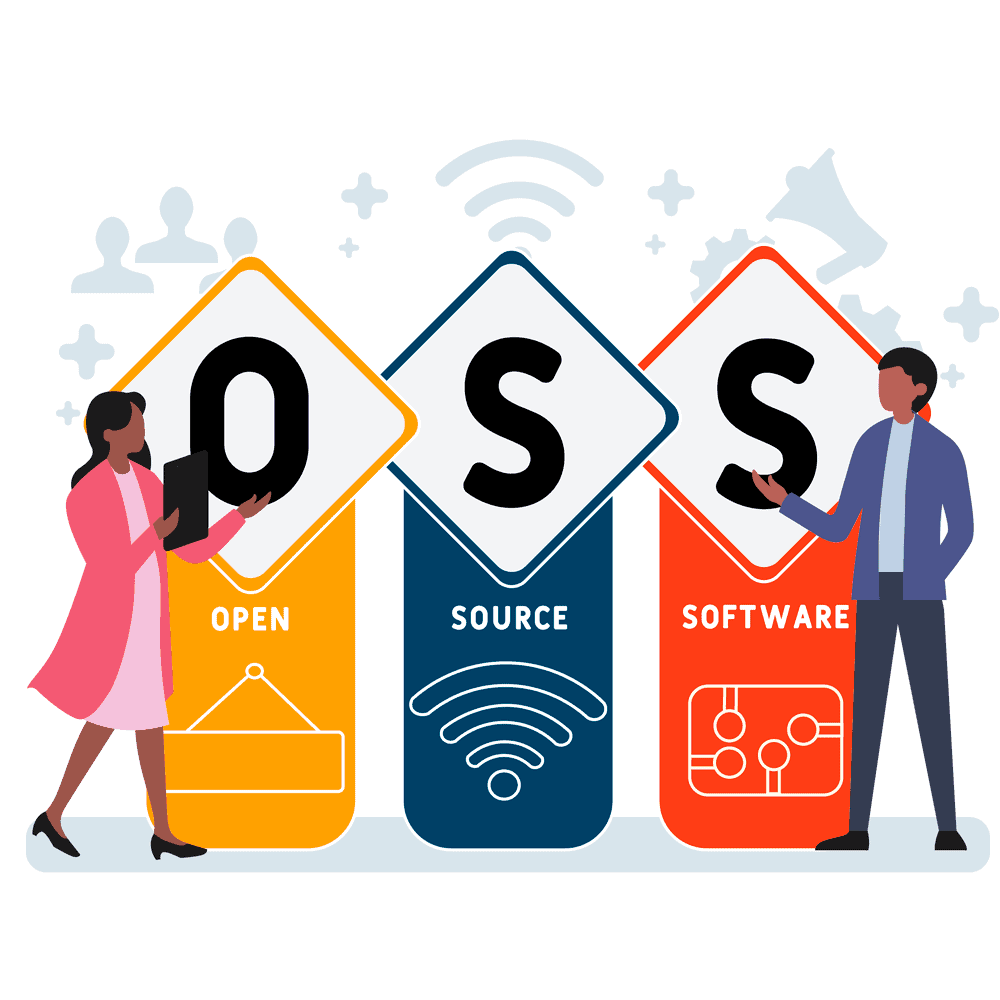 IBM spent $34 Billion to acquire Red Hat, a renowned enterprise that builds open-source technologies. Another IT giant, Microsoft bought the code-repository GitHub for around $8 billion in stock. These acquisitions speak volumes for how the concept of open-source software has been embraced by the software development industry with open arms.
IBM spent $34 Billion to acquire Red Hat, a renowned enterprise that builds open-source technologies. Another IT giant, Microsoft bought the code-repository GitHub for around $8 billion in stock. These acquisitions speak volumes for how the concept of open-source software has been embraced by the software development industry with open arms.
Open-source software (OSS) has made the software ecosystem much better, and it also serves as a medium for skilled programmers to collaborate and learn from each other.
Programmers use various open-source software for their own projects, and they also contribute to many other OSS. However, certain aspects of OSS can trouble many developers.
For example, how safe is it for a software engineer to rely on an OSS for their commercial projects? What are the different open-source software advantages that programmers can leverage to create and in what way? And is it any good for programmers to invest time in contributing to an OSS?
I will answer these questions to the best of my knowledge through this blogpost. But first, let us begin with a crystal-clear definition of open-source software.
What Is Open-Source Software?
You may already know what open-source software is, but if you’re just starting out in the field, this section will offer an in-depth explanation. To understand what open-source software is, you must first understand what open-source code is.
We know that programmers write a collection of commands for specific tasks, and that’s how we get the software to do what it’s supposed to do. So that underlying code, compiled together to ensure the software’s functionality, is called the source code of that software.
If that source code is licensed for public use, i.e., if any programmer can legally view the source code and can make changes to it, the software becomes open-source software. LibreOffice is one of the most popular open-source software out there.
Most open-source projects are usually hosted on a repository, like GitHub. So anyone who wishes to make changes to the code can download the code from the repository. They can then submit their proposed code with suggested edits. These proposed edits are thoroughly reviewed by the owners or authorized moderators of the OSS before they are incorporated into the project.
Another thing to note here is that all OSS comes with a bunch of terms and conditions specified in its license. So the degree to which you can modify an OSS or use it for other purposes varies from one piece of software to another.
On the other hand, a software application whose source code is restricted to be viewed and edited by only those programmers who are authorized to do so is called proprietary software. Software such as Microsoft Office and Adobe Photoshop are examples of proprietary software.
Is Open-Source Software Also Free of Cost?
Not necessarily. There are certain OSS that let you use the software in its entirety without your having to pay anything for it. But there are also a number of OSS that charge a small fee in the form of a one-time payment when you install it or charge in the form of subscriptions.
Interestingly, many programmers who created their own OSS have also found some more genuine ways of making a few bucks. They offer enterprises and other developers paid consulting fees for using the source code the most efficient way.
Similarly, not all proprietary software is paid. Some developers or organizations may just want to build software that anyone can use, without making its source code public. This software is not considered commercial software.
Types of Open-Source Software
There are open-source projects for all types of software out there. Here are some of the most notable ones of the lot:
Open-Source Software for Database Management

However, as the popularity of OSS grew, many database management software applications have entered the market that are completely open-source. They are pretty useful for tasks like setting up the database and taking care of the security and backup requirements.
MySQL, Apache Cassandra, and Cubrid are some of the common open-source database management systems.
Open-Source Operating Systems
When it comes to operating systems, there are other alternatives that, unlike Windows, are open-source. The most famous is Linux. Besides being free of cost, Linux is also open-source and supports a huge chunk of common programming languages.
Many developers love Linux for the flexibility it offers while building software, including other operating systems. Android is an example of an operating system built using the kernel of Linux.
Apart from Linux, there are also other, less popular OSs, like FreeBSD, that you can use with Gnome 2 and KDE desktops.
I have a lot of expectations from the recently built ReactOS too. It lets you run and work with Windows software in an open-source environment. It’s a nice playground to work around and experiment in, with both new and existing features in MS products.
Other Open-Source Software Development Tools
To every programmer’s relief, there are a bunch of open-source tools for building almost any kind of application. To start with, you have a pretty popular open-source web browser—Mozilla Firefox. In fact, Mozilla also has an open-source email application called Mozilla Thunderbird.
Then, there’s WordPress that you must be quite familiar with. We now have quite a few options for open-source content management systems too. Joomla and Drupal are prominent examples of the same.
PHP is a popular open-source scripting language, and you have Apache and Nginx if you want to use open-source web servers for your projects.
In my opinion, however, the most useful of all are open-source web frameworks. Some of the biggest names in the ecosystem like Ruby on Rails, Django, and Reactjs are open-source.
Similarly, a good number of mobile app development frameworks are open-source too. Flutter and React Native are two notable examples.
The Two Facets of Open-Source Software for Programmers: Contributing to OSS and Using OSS
Now let’s get to the relevance of open-source software for programmers. As a software engineer, you have two options for working with OSS. One, you can use your existing skill set to contribute to OSS or even create OSS for the community. Two, you can use existing OSS for any projects that you are working on.
Let’s talk about each aspect in detail.
First, Why Programmers Should Consider Contributing to Open-Source Software
A large number of programmers, beginners as well as advanced, contribute to a number of open-source projects regularly.
The biggest benefit of contributing to OSS is that it boosts a programmer’s portfolio and helps them get ahead in their career. Their GitHub profiles serve as proof of how active they are in discovering and contributing to OSS. This involvement contributes to their credibility a lot!
Secondly, OSS projects are a programmer’s opportunity to keep working on their coding skills. When you make a contribution to an OSS, you know that your code will be visible to a lot of members of the community. So naturally, programmers develop a habit of writing cleaner code while contributing to OSS. Moreover, you also get a chance to hone your skills in terms of identifying and fixing bugs in a wide variety of software projects.
Many programmers also feel that contributing to OSS is the easiest medium to use to give back to the community. When you have benefited from so many OSS for your commercial projects, it feels wonderful to be able to help other developers access different kinds of OSS for their projects.
Lastly, contributing to OSS helps you gain a deeper understanding of the business and other utility aspects of software development. For example, before you contribute to OSS, you will ponder over a lot of factors:
- What kind of project you should contribute to
- What aspects of that project need enhancement
- How you can solve problems and enhance those aspects of the project
- What the larger impact of your contribution on other programmers, as well as the users, will be
This approach will help you become a better programmer when you begin working on other commercial or proprietary software.
Second, Why Programmers Should Use Open-Source Software

First of all, you have the flexibility to edit the code to meet your unique needs. You cannot view the source code of proprietary software, let alone edit it. So programmers don’t have enough flexibility while using proprietary software.
However, with OSS, you have the benefit of using what works for you and ditching the rest. So instead of building a project from scratch, you have a few ready-made components available. It’s a cherry on the cake if you can take care of the other aspects of your project just by modifying the source code of an OSS.
Moreover, with access to the source code, you can better compare various pieces of software. To reiterate, not all OSS are free of cost to use. Programmers often find themselves confused as to which tools or software they should use while building their projects. Most commercial software developers require you to pay a fee if you want to use it. However, once you actually begin to use it, you may find that the software is not as useful to you as you had thought it to be.
OSS come in handy for avoiding situations like these. Because you have access to source code, you can understand all the technicalities of the software before you integrate it with your project. Even if it’s a paid OSS, you can decide whether to buy it or not based on what the code says about its functionality.
A third reason why you should use OSS is that it generally gets faster updates and is always improving. The OSS ecosystem is in a constant state of review and upgrades. There are always skilled developers working on making the software more efficient, secure, and user-friendly. The code contributed by these programmers also gets reviewed much quicker.
So, compared to proprietary software, open-source software is faster in both improving and resolving issues. These constant enhancements further empower you with access to quality software that is stable, reliable, and more secure.
Risks Associated With Using Open-Source Software
There is nothing in this world that doesn’t come with a few associated risks, no matter how good it is. Using OSS has its advantages but it also puts you at certain risks.
Security Vulnerabilities
When the source code of a software application is publicly available, its security becomes all the more vulnerable. Hackers are always on the lookout for spotting security loopholes in open-source software. Because many OSS are used by a number of developers and enterprises across many systems, all those connected projects also become vulnerable to a malicious attack.
As a programmer, if you are working for an enterprise, you have to be super cautious with using OSS. One mistake from your end could result in massive losses for the enterprise. The long-term effects of such a disaster on a programmer’s career cannot be understated.
That is why it’s important that you understand and abide by the OSS policy incorporated by the enterprise. If the organization you work for doesn’t already have such practices in place, ensure that you do your bit and familiarize them with how to create an open-source policy.
Risks of Failure To Comply With OSS Licenses
There are so many different types of licenses associated with open-source software! That means, when you decide to use an open-source component for your project, you have to study and understand its licensing terms and conditions thoroughly.
It’s possible that you as a programmer (or the business you work for) miss out on a few minor details of these terms and conditions. When that happens, you and your client/organization are at great risk of receiving legal notices from the authors of the source code.
Moreover, if you have already integrated an OSS with other proprietary software you are working on, you might have to lose ownership of this new project you created using OSS.
OSS Is a Double-Edged Sword, So Use It Wisely

On the other hand, OSS also offers significant benefits to programmers if they decide to use it for their personal or commercial projects. There are so many different types of OSS that can save you tons of development time.
However, not all OSS is a good fit for all types of projects. You have to be thoroughly sure about the security standards of the OSS before you begin using it. Furthermore, because OSS is always at risk of either being misused or impacted through malicious attacks, these pieces of software come with very detailed and complex licensing terms and conditions. So make sure you make it a habit to read these T&C before you integrate your project with an OSS.
Every OSS is your playground to work up your skills, experiment, and make things wonderfully better. Use it wisely and you are surely going to win it with your skills in the long run!
